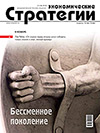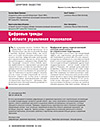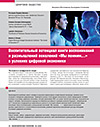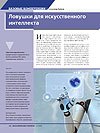Human Resources Management Trends
The article examines the impact of digital on human resources management, and its strategic component on the basis of the positions of leading experts in recent years. The content characteristics of a new generation of employees are given that determine the context of such topical areas of HR activities as motivation, recruiting, leadership. Conclusions are made about a meaningful change in the HR management activities, author also reveals some problems and prospects for using Big Data in HR.







